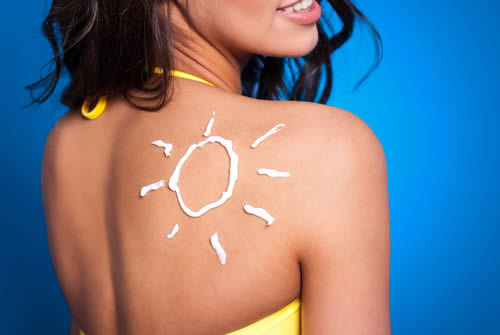Sunscreen is a proven way to protect your skin from the sun’s damaging rays. When correctly used, it can lower your risk of skin cancer and help prevent premature skin aging caused by the sun. Sunscreen works by absorbing and reflecting the sun’s ultraviolet rays.
It doesn’t matter how old you are, sunscreen should be consistently used every day. Men, women, and children over six months old are good candidates for sunscreen. It also doesn’t matter if your skin type is naturally fair or dark, it can be damaged by a lifetime of sun exposure. One key is to find a product that you like and are willing to use that also fits the recommended guidelines for safe and effective sunscreen. Dr. Bernard Raskin in Bakersfield can suggest quality sunscreen products and guidelines to help protect you from the sun.
Sun Protection Factor (SPF)
One of the main elements of choosing a sunscreen is its SPF rating, which indicates how long the sunscreen will remain effective on the skin. Experts say that the higher the SPF rating, the more that it can protect your skin. Our dermatologists recommend an SPF rating of at least 30 or more. It is also important to use enough sunscreen so that your skin is adequately covered to provide protection. Sunscreen should be reapplied every two hours while out in the sun.
Broad spectrum
Broad spectrum sunscreen means that it protects your skin against ultraviolet A (UVA) and ultraviolet B (UVB) rays. UVA rays are longer or weaker than UVB rays, which are medium or stronger rays. Sunscreens labeled to protect against both provide a good range of protection.
Water resistant
It is important to remember that sunscreen can wash off in water or with sweat. That’s why you may want to choose a product that is labeled Water-Resistant, which maintains the listed SPF rating for 40 minutes of activity. Sunscreens labeled Very Water-Resistant offer protection up to 80 minutes.
Allergic reactions
Some people develop rashes or other allergic reactions to sunscreen. If this occurs, try a different brand or type of sunscreen. Often the ingredient which people react to in sunscreen are PABA-based chemicals, so look for brands without PABA if needed. Also, sunscreens containing zinc oxide or titanium dioxide cause few allergic reactions. If you continue to have trouble finding a safe and effective type of sunscreen, consult our dermatologists for help.

